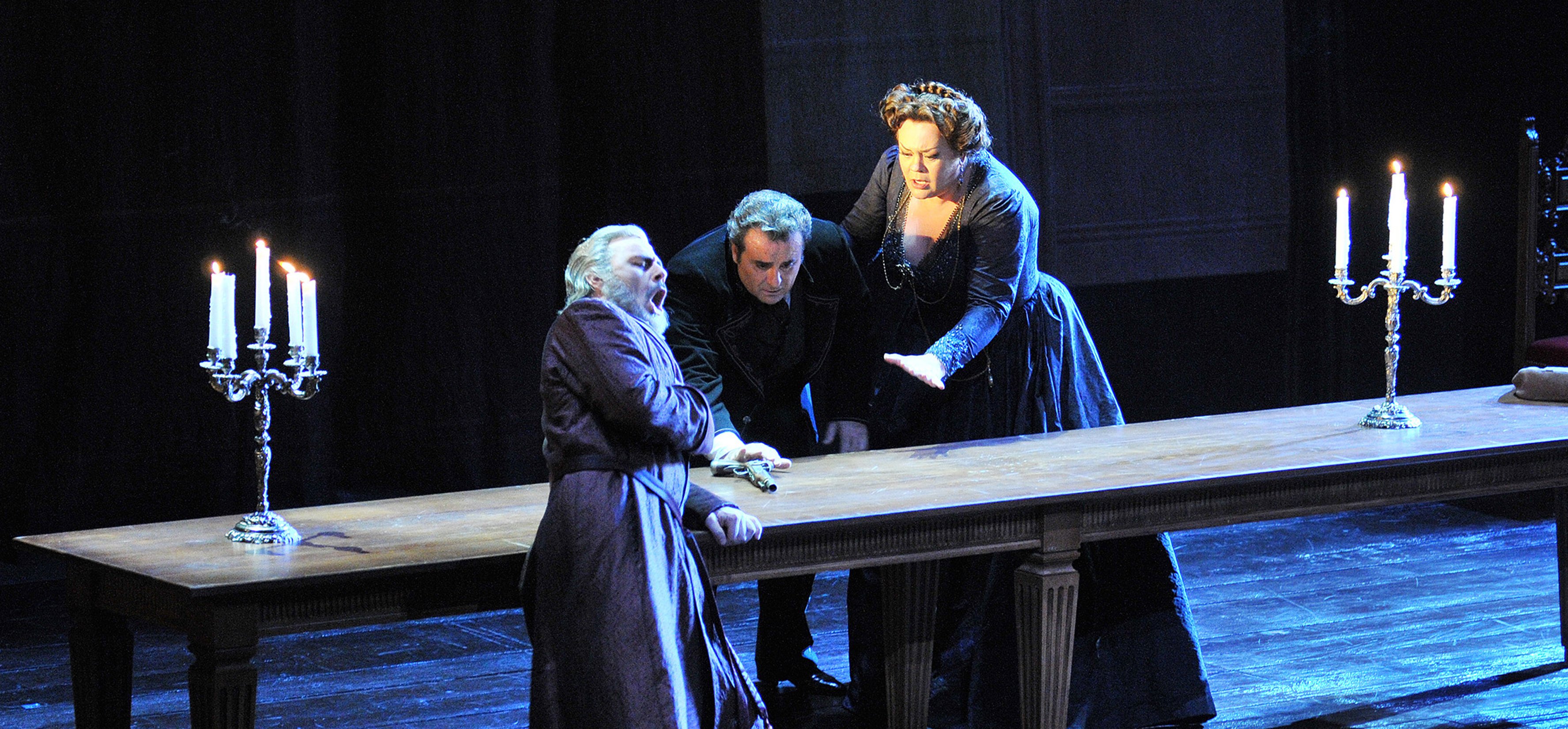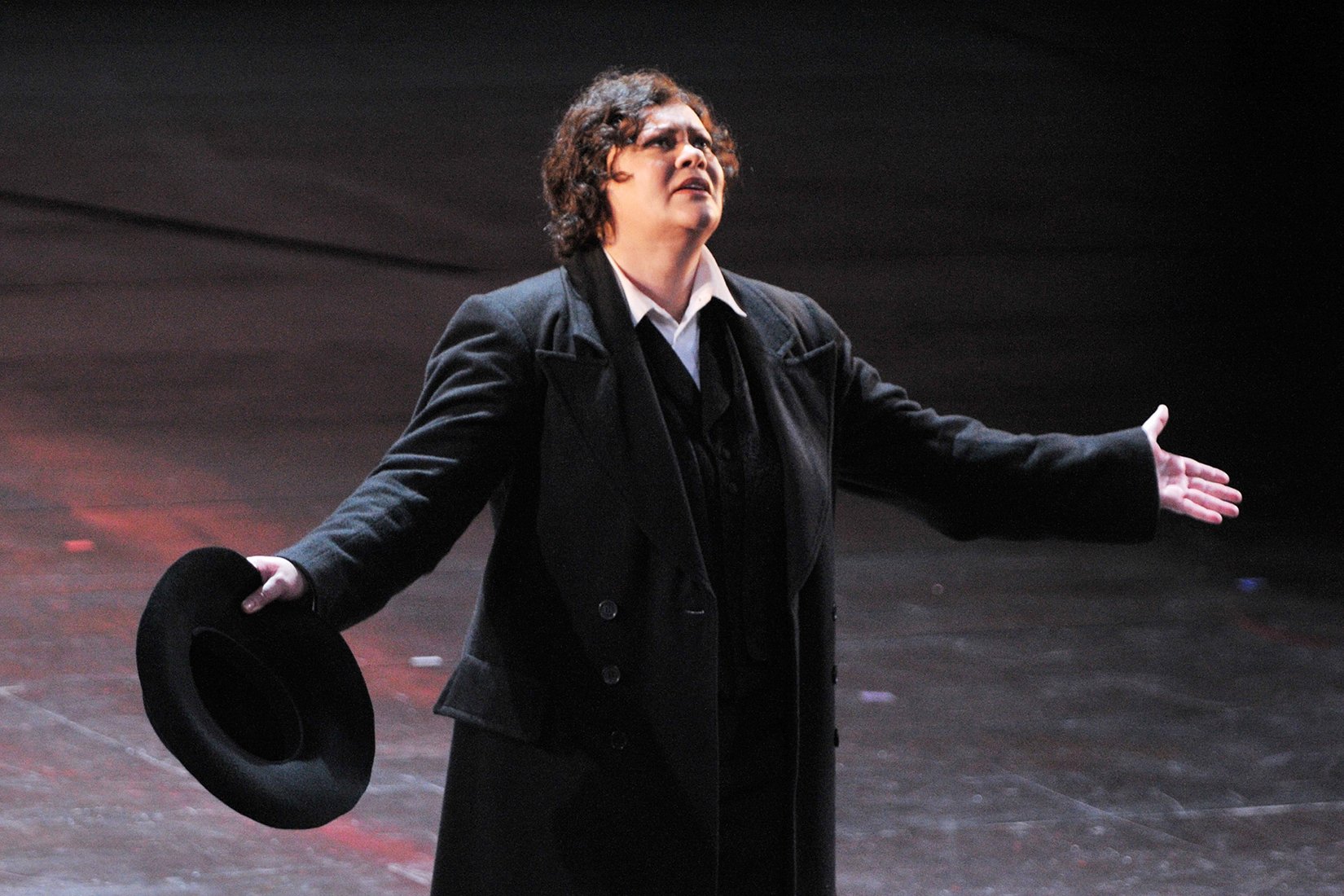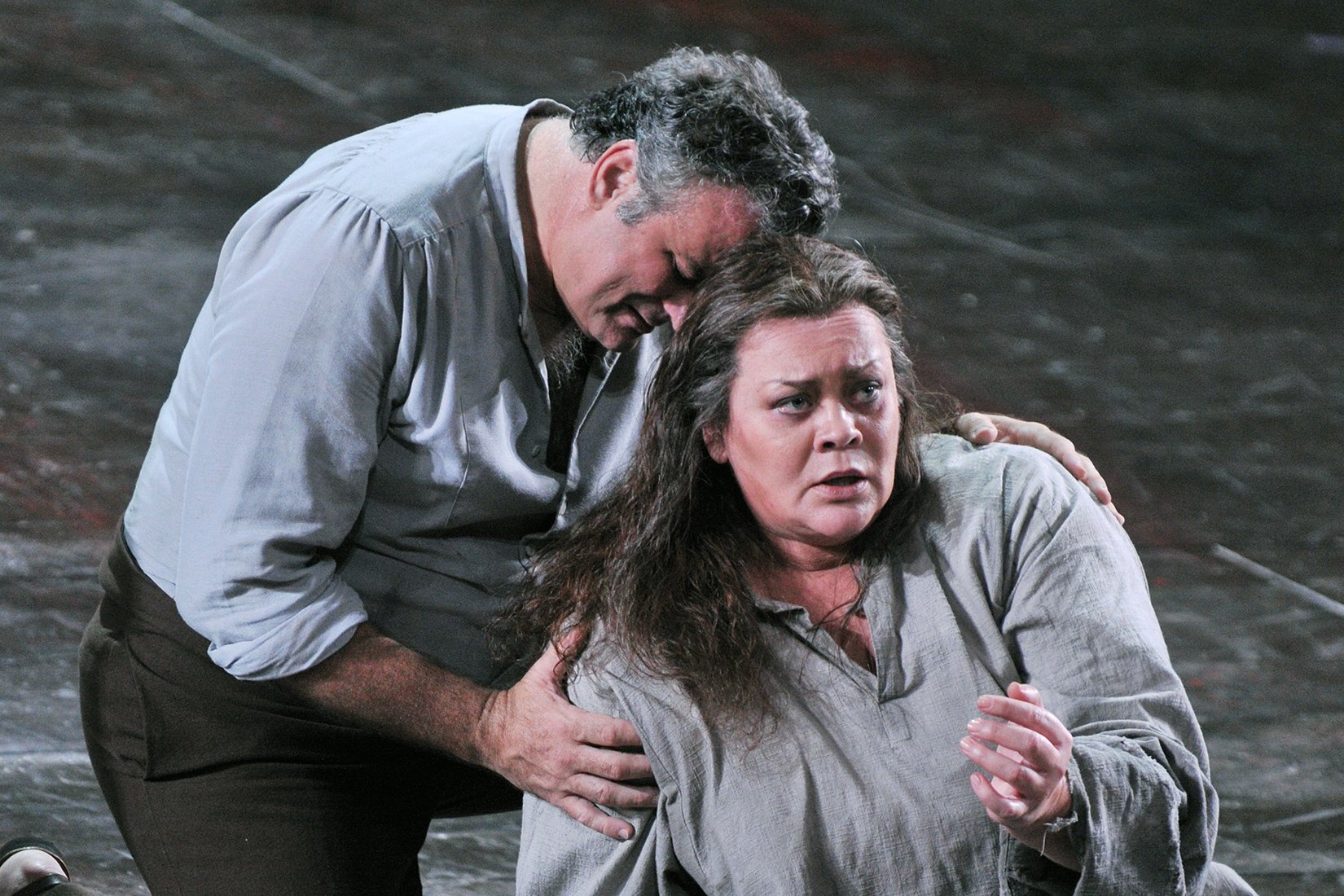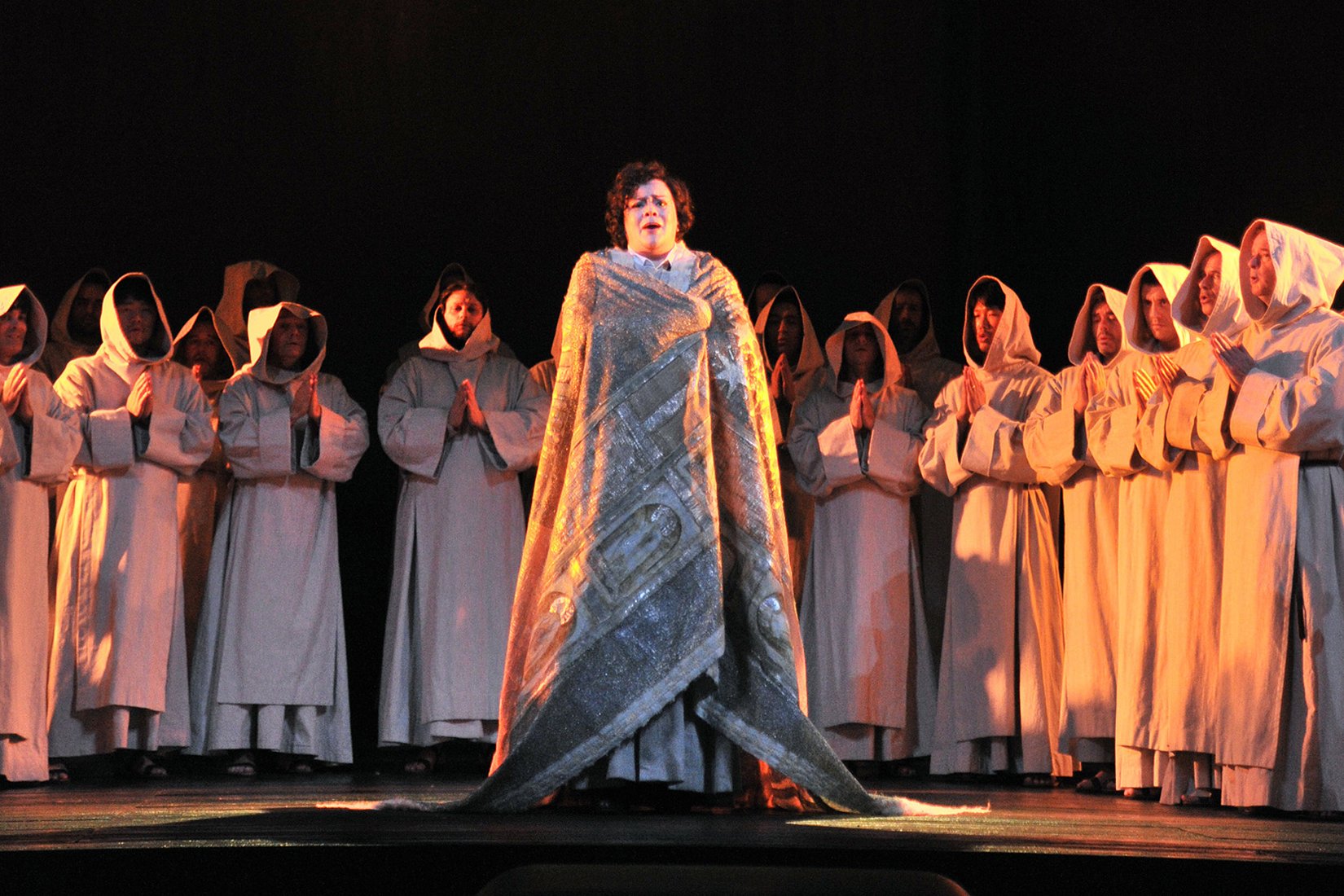
Jean-Claude Auvray’s production has, over the past decade, become one of the foremost international stage proposals for La forza del destino. Its main virtue lies in its austere and symbolic set design, which reinforces the opera’s central themes —the obsession with death, inevitable fate— while also allowing space for the singers to deliver their best performances and shine in the most exalted passages of the score, one of Verdi’s most beautiful.
Act I
Overture
The overture did not appear in the original 1862 version. Verdi composed it for the 1869 revision, when he presented the opera in Milan, and since then it has become an essential addition that greatly enhances its impact. Not only is it one of Verdi’s longest instrumental passages, but also one of the most complex: it begins with three ominous notes —the inevitable call of fate— and gathers in more than seven minutes all the central melodic motifs of the story. In Auvray’s staging, notably, it doesn’t play at the beginning of the opera but between Acts I and II.

Act III, Scene II: Don Álvaro, Don Carlo
«Solenne in quest’ora»
Don Álvaro has been wounded in battle and feels his end is near. On one hand, he feels relieved, as his fate, which he desires most—death—is approaching, but he doesn’t want to die without first preserving his deepest secret. In a highly charged lyrical duet, Don Álvaro asks Don Carlo to destroy some documents he keeps in a pouch. The two men, unaware at that moment that they are enemies, join in a song as fragile as it is dramatic, summarizing the sense of loyalty owed to loved ones in life’s gravest moments.

Act IV, Scene II. Leonora
«Pace, pace, mio Dio!»
Unaware of Don Álvaro and Don Carlo’s arrival at the convent where she has lived in seclusion for years, Leonora patiently awaits her inevitable fate: only death will end her suffering, and in an aria of transparent lyricism, she asks God to hasten the arrival of her fatal hour. It is the most perfect solo piece of the opera, coming near the drama’s end, and stands in stark contrast to the violent resolution: indeed, Leonora will meet her death, but in the cruelest way—stabbed by her own brother just as she goes to aid him.


